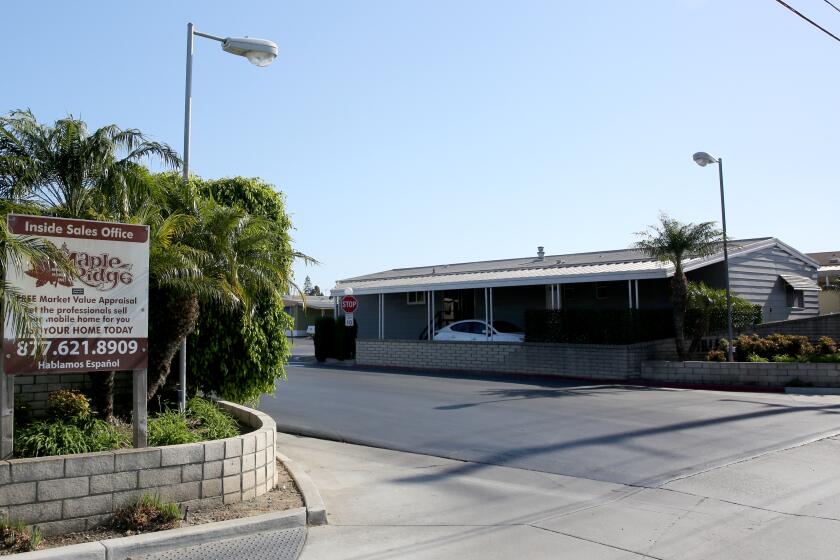THE BELL CURVE:Tough-guy tactics come first for council majority
- Share via
The Pilot recently asked the five Costa Mesa City Council members what they thought was the best way to eradicate gangs in Costa Mesa. Their answers offer a clear distinction in the social attitudes of the majority and minority members of the council. Listen to how they led off their answers.
Eric Bever, while pushing a “great degree of interagency cooperation,” wrote that, “first and foremost, a strong message that Costa Mesa has zero tolerance for gangs must be communicated loud and clear.”
Katrina Foley started out with U.S. Atty. Gen. Alberto Gonzales saying, “Education and prevention play a vital role in keeping young people away from the trap of gangs and gang-related violence.”
Linda Dixon said, “In order to eradicate gangs, our community must develop a multifaceted approach that utilizes many different segments of the community … [working] together to provide safe opportunities and education for youth and their families.”
Wendy Leece said, “Many local public safety agencies, the school district and nonprofit organizations are working to eliminate gang activity. But I believe it is time to pursue civil injunctions, which define gangs as a public nuisance.”
And Mayor Allan Mansoor responded, “The best way to eradicate gangs in the short term is with strong law enforcement.” He later added that “long-term is more of a social solution.”
All five council members noted both child and parental education and the use of social agencies, on the one hand, and stepped-up, aggressive law enforcement on the other. The difference was that Foley and Dixon went to education and prevention as primary, the other three to tougher law enforcement and prosecution of gang members. The same fundamental attitudes differentiated the candidates in the recent City Council election when the issue was the use of city police to aid and augment the work of federal immigration police.
The choice is between going to the roots of the antisocial behavior that motivates and energizes gangs and looking for permanent solutions while encouraging aggressive enforcement, and turning to open warfare against gang activity on the grounds that nothing short of this will provide an opportunity for the roots approach to kick in.
The electorate in Costa Mesa in November approved the candidates who supported the latter approach. Their answers to the gang question make it quite clear that they will approach similar issues to come from the same tough-guy place. What Costa Mesa voters saw and heard from the winners in a split election is what we’re going to get — at least for the next two years.
Meanwhile, council members might like to read a city-financed report on gang violence in Los Angeles that says, in summary, to go after the toughest members of the nastiest gangs, but don’t expect much in the way of long-term success until suppression is backed up by smarter intervention and prevention. The writer of that report told a Los Angeles Times reporter, “The only factor that has ever substantially reduced crimes by gangs is jobs.”
If there is anyone left who still regards baseball as a sport, first, and a business, second, they might usefully stop trying to buy the Golden Gate Bridge and have a look at the activities of the California Angels front office during this off-season. While investing multiple millions in highly dubious veteran free agents, the Angel management allowed the core of the World Championship team to depart quietly for other teams that don’t share the Angels’ disenchantment with them.
This is a clear violation of the Eckstein Principle.
David Eckstein was the soul of that Angels team. For reasons still impenetrable, he was considered expendable and ended up in St. Louis, where he led the Cardinals to a world championship. The Angels have thoughtfully beefed up the Cardinals again this year by cutting loose second baseman Adam Kennedy who promptly joined Eckstein in St. Louis, where they can torment Angels fans in the coming season.
And last week, the Angels gutted the heart of its championship team by offering Darin Erstad — whom Angels bench coach Ron Roenicke called “the last real gamer we have” — only a minor league contract while the White Sox saw him as a significant everyday player.
So we’ll be watching him making those impossible catches in Chicago instead of Anaheim.
All of these players are relatively young. For the exciting years they gave us here, we’ll be wishing them well — while they torment us from their new homes.
My basketball pals, Carol and Stan (last names omitted to prevent retaliation from USC supporters), had a bad last weekend. Stan is a graduate of the University of Arizona, and he had a rare opportunity to see his basketball team in action Thursday and Saturday, when they played USC and UCLA. He and Carol watched Arizona lose both games. Since the UCLA game was in the afternoon, they were able to pick me up to go to the UCI-Cal State Fullerton game Saturday night.
As stalwart UCI backers, we lost that one, also — to a heartbreaking last-second three-pointer.
But 0-for-3 wasn’t the worst indignity Carol and Stan suffered.
Because they were using tickets to both games that came from friends with choice seats, they found themselves sitting in the midst of USC and UCLA backers while wearing Arizona sweaters. And the difference in treatment still had them fuming when they picked me up Saturday night.
UCLA backers, they told me, were light-hearted, respectful and pleasant to the Arizona couple.
But the USC crowd around them was just the opposite. Loud, crude and finally physically threatening when Stan objected to the language directed at them.
Fortunately, we could just watch basketball at UCI’s Bren Center. There weren’t enough people at that game to cause any problems.
All the latest on Orange County from Orange County.
Get our free TimesOC newsletter.
You may occasionally receive promotional content from the Daily Pilot.






